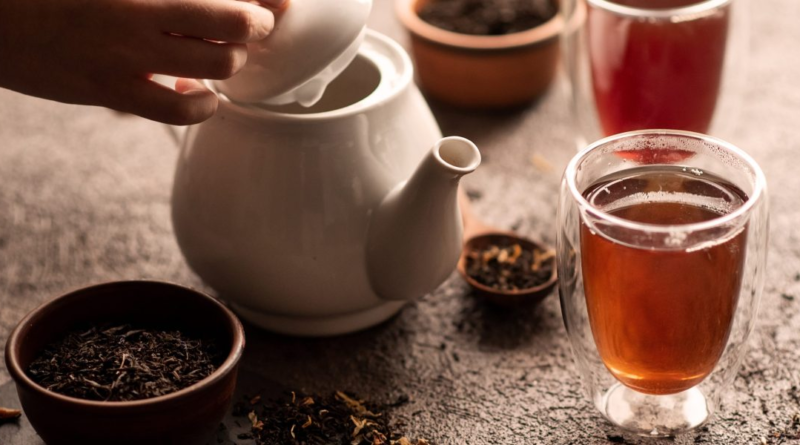A daily cup of tea could help improve blood sugar. Experts say one type offers the most benefits
A special type of fermented tea appears to help control blood sugar levels and stave off disease onset and progression of diabetes, according to new research.
Daily consumers of “dark tea” had a 53% lower risk of developing prediabetes and a 47% lower risk of developing diabetes, according to data presented by researchers Monday at the annual meeting of the European Association for the Study of Diabetes in Hamburg, Germany.
How the study worked
Scientists from the University of Adelaide in Australia and Southeast University in China examined the data of nearly 2,000 adults living across China. Slightly more than half of the adults did not have diabetes or prediabetes; around a quarter had prediabetes; and around a quarter had diabetes. Participants were questioned about how frequently they drank tea and what type of tea they drank. They also underwent a number of tests, including urine glucose and insulin resistance.
After differences in lifestyle factors were sussed out, researchers found that drinking any tea daily was associated with a reduction in insulin resistance and an increase in glucose excreted in urine. They also found that daily tea drinkers had a 15% lower risk for prediabetes and a 28% reduced risk for type 2 diabetes, when compared to those who never drank tea.
“Our findings hint at the protective effects of habitual tea drinking on blood sugar management via increased glucose excretion in urine, improved insulin resistance, and, thus, better control of blood sugar,” co-lead researcher Dr. Tongzhi Wu, an associate professor from the University of Adelaide, said in a news release on the research.
What is ‘dark tea’?
The best results were found among consumers of “dark tea,” according to Wu. Contrary to what westerners might think, just because tea is black or dark-colored doesn’t mean it’s “dark tea.” Dark tea is one of six major tea categories in China and is the only one produced using microbial fermentation, according to a January article in the journal Chinese Herbal Medicines.
Types of dark tea, according to the article, include:
- Pu-erh tea
- Liubao (also known as Liupao or Liupu) tea
- Fuzhuan brick tea
- Qingzhuan brick tea
- Kangzhuan brick tea
Dark tea might have been extra beneficial to the health of study participants due to the fermentation process used to produce it. That process may result in potent antioxidant and anti-inflammatory effects, improved insulin sensitivity and performance of insulin-producing cells, and a more diverse gut microbiome, according to researchers.
Does dark tea mimic diabetes drugs?
Dark tea may mimic the effects of a class of a relatively new class of diabetes drugs called SGLT-2 inhibitors, which allow the kidneys to excrete more glucose, thus lowering blood sugar levels, according to study authors. Such inhibitors also offer protective effectives for the heart and kidneys.
SGLT-2 inhibitors—with brand names like Jardiance and Farxiga—are fundamentally different from GLP-1 agonists like popular weight-loss and diabetes drugs Wegovy and Ozempic, which increase insulin secretion and reduce food intake.
That’s according to Dr. Utpal Pajvani, an associate professor of medicine in the Division of Endocrinology at Columbia University in New York City. While it’s an interesting observation that dark tea drinkers have increased glucose excretion in urine like SGLT-2 inhibitors, “there is insufficient evidence to suggest that drinking dark tea would have beneficial effects that mimic” such drugs, he tells Fortune.
What’s more, the levels of glucose excreted by dark tea drinkers appears to be very small compared to the levels excreted by patients taking SGLT-2 inhibitors, he adds.
Dr. Abasalon Gutierrez, associate professor of endocrinology with the McGovern Medical School at UTHealth Houston in Texas, notes that some studies suggest that green tea and coffee may also reduce the risk of developing type 2 diabetes.
What’s more, a July study published in the journal Frontiers found that drinking the fermented beverage kombucha could lower fasting blood sugar levels.
But “we still need to learn more about the mechanisms of dark tea on the kidneys,” he tells Fortune, adding that the Mediterranean diet and some of its components—like nuts, whole grains, fiber, fruit, and dairy—could also reduce the risk of developing the disease.
Drinking dark tea daily “may be one simple step people can easily take to improve their diet and health,” co-lead researcher Dr. Zilin Sun, director of Southeast University’s Institute of Diabetes in Nanjing, China, said in the news release.
Despite their optimism, researchers caution that the study doesn’t prove, and merely suggests, that drinking tea daily improves blood sugar control. They’re pursuing further research that might further establish their findings.




